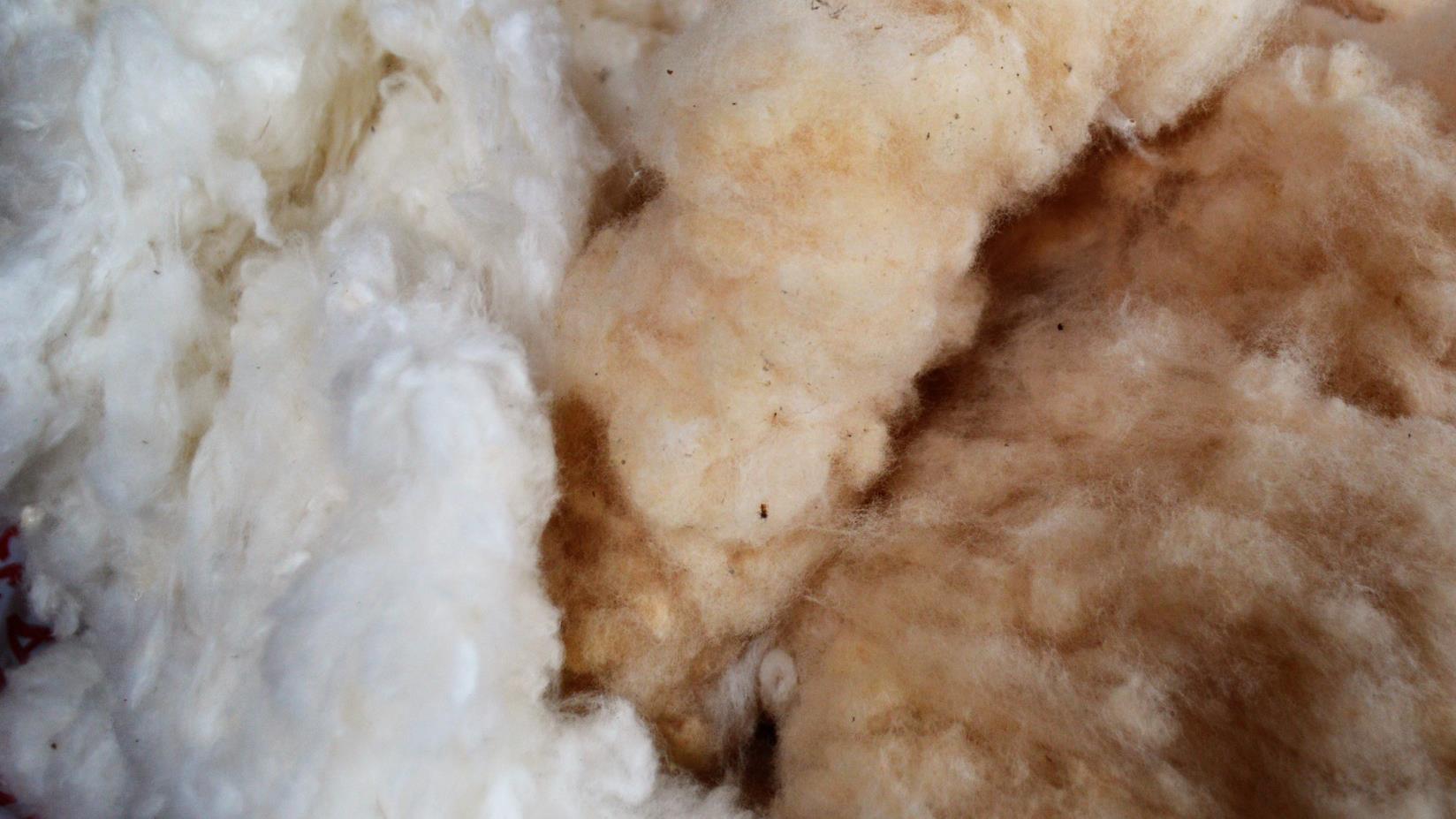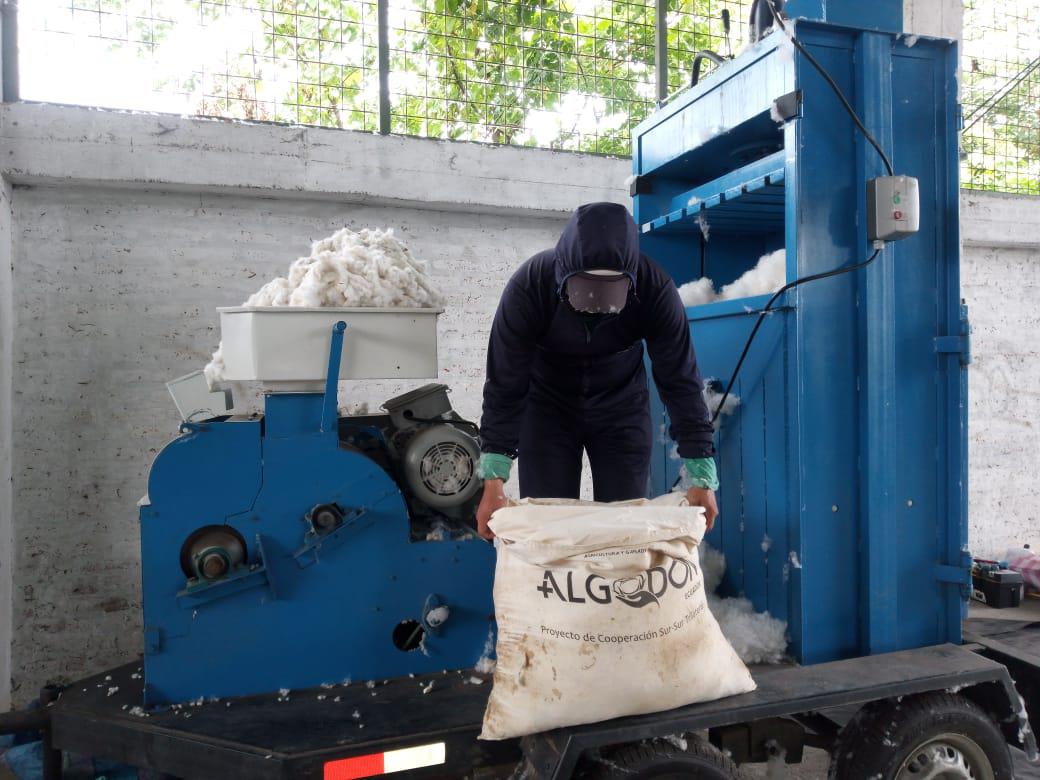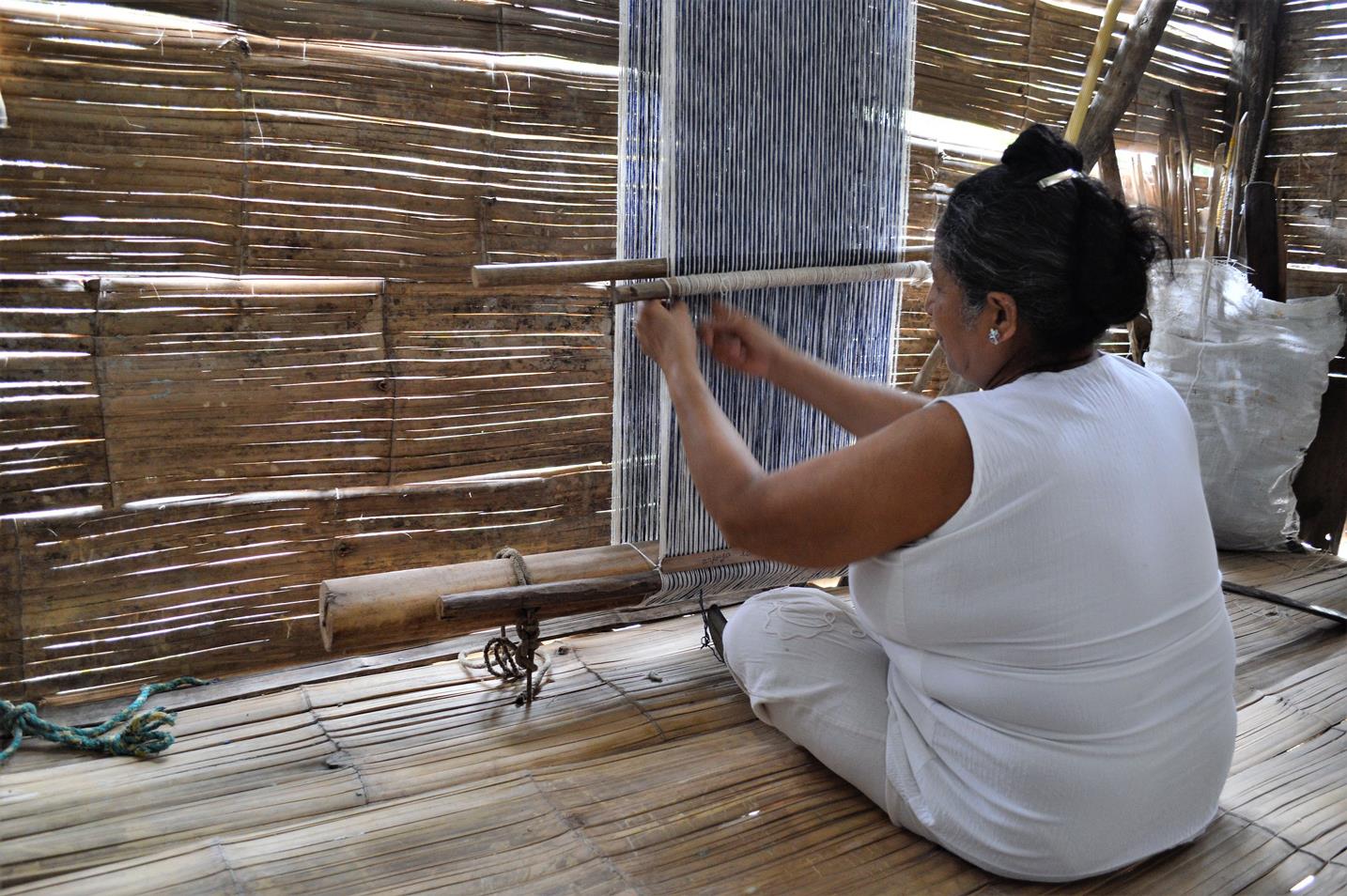
Reintroducing cotton in Ecuador
Innovative small-scale technology opens up new livelihood opportunities for rural communities
Bringing back cotton production to Ecuador, with the support of FAO and the Brazilian Cooperation Agency, is helping to revitalise and transform rural communities. ©FAO/David Suárez
06/10/2022
For a group of women in the Tosagua district of Ecuador, close to the country’s Pacific coast, daily life used to follow the pattern of many farming communities, caring for families, crops and livestock. But for the last five years, the 127 members of the Association of Community Women of Tosagua Canton (AMUCONT) have been at the forefront of Ecuador’s groundbreaking initiative to bring back cotton production to the area. Since its heyday in the 1970s, the crop had almost vanished amid a combination of climate-related factors, pests and global economic trends.
The reintroduction of cotton, with the support of FAO, the Brazilian Cooperation Agency of the Ministry of Foreign Affairs and Ecuador’s Ministry of Agriculture and Livestock, is helping to transform the lives of rural communities, and women in particular as the country’s traditional farmers of cotton, as part of a diversified farming strategy. Modelled on successful experiences in Brazil, the project brings in cotton in rotation with the women farmers’ traditional crops of peanuts, cassava and maize, increasing the community’s resilience and adaptability to climate change.
Ecuador is just one of seven countries in the region, alongside Argentina, Bolivia, Colombia, Haiti, Paraguay and Peru, which are implementing the +Cotton project. This Trilateral South-South cooperation initiative promotes the sustainable development of the cotton value chain in the region to increase incomes and employment opportunities for family farmers.
This boost to these Ecuadorean women’s incomes has also raised their confidence. "We now feel we are in the driving seat of this enterprise, which is cotton," says association member Melva Ormaza.


The project provided the community a mini-ginning machine, the only one in Ecuador, to cut producers’ reliance on large-scale ginning factories and empower them to start their own businesses. ©FAO/David Suárez
The work involves processing the fibre using innovative small-scale ginning technology. It’s a breakthrough empowering the community to produce cotton viably without relying on the large ginning factories, of which Ecuador’s last remaining one closed at the start of the COVID-19 pandemic. The project provided the mini-ginning machine, which is currently the only one in the country.
The women believe the mini-ginner promises significant benefits for the future, presenting the possibility of entrepreneurship and making a 'leap' to opening their own sewing workshops for added-value products like clothing and selling the seeds as animal feed.
The community’s revival of cotton production will further strengthen the work of these women who, since forming their association in 2005, have played a vital role at the heart of the local economy and community as agents of social change, making them role models for many women in the surrounding area.
This year, the AMUCONT association received Ecuador’s "SOMOS EPS" certification, awarded to organizations that comply with the country’s Popular and Solidarity Economy (EPS) principles. This gives them advantages such as preferential participation in promotion and marketing spaces, as well as access for their products and services to private enterprises. And in October 2022, they are due to receive the country’s seal of certification for products from family agriculture.

Cotton has the potential to provide decent livelihoods in an environmentally friendly and sustainable way. ©FAO/David Suárez
As the international community marks World Cotton Day on 7 October, the importance of this project and this Ecuadorean community’s work, “goes beyond just producing a commodity; it shows the potential of cotton to help promote decent livelihoods in an environmentally friendly and sustainable way, producing fairly priced products,” says FAO Representative in Ecuador, Agustín Zimmermann.
More still needs to be done to level the playing field in the market. But Zimmerman says a revived cotton sector in Ecuador has the potential to provide opportunities and decent jobs in rural communities.
Related links
Learn more
- Website: FAO & Markets and Trade: Cotton
- Website: FAO and World Cotton Day
- Website: +Cotton - Program of Brazil-FAO International Cooperation

